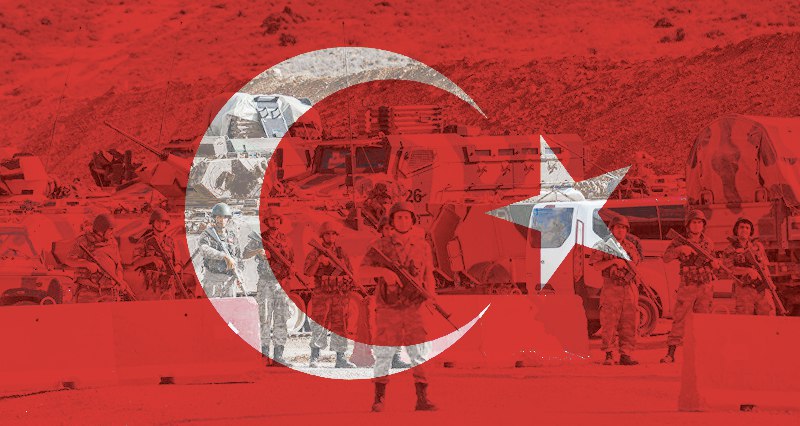Almost exactly 100 years ago, in the middle of the night between March 15 and 16, 1920, British and French forces raided the Sehzadebasi Military Barracks in Istanbul. The attack came after the adoption of the Misak-i Milli (the National Oath) in the Ottoman Parliament on January 28, 1920. It was the fire of salvation that Mustafa Kemal was burning in Anatolia that inspired Parliament to make this historic decision.
The first light sparkled with the famous words of Mustafa Kemal had spoken on November 13, 1918: “They will leave, as they have come.” Four years later, he commanded his army with four words, this time on the morning of September 1, 1922, sparking the final light: “Armies! Your first objective is the Mediterranean!” The military victory was crowned by the Treaty of Lausanne, in response to which, in July 1923, Churchill wrote: “The Turks’ reconquest into Europe is the worst humiliation for the Allied Powers… The victory of the Allies has never been as successful anywhere as it was in Turkey. Now, the might of the winner has never been humiliated anywhere as much as it had been in Turkey.”
300,000 tons of ammunition was shipped from the Soviet Russia in September 1920, a fact which determined the fate of both major battles. When the Turkish attack began on the morning of August 26, 1922 in Kocatepe, the modernized and fully equipped Greek Army stood in front of the outnumbered Turkish soldiers who didn’t even have proper uniforms. Izmir was liberated on September 9.
No one summed up this success better than Gandhi, who commented “Until Mustafa Kemal had defeated the British, I thought God himself was British.”
100 years later
Exactly 100 years after the raid of Sehzadebasi Garrison, the Anatolian Turks again face the danger of invasion. The potential invasion has two fronts: the first is the invasion of the Blue Homeland, the second is the invasion of our minds. Objections to the delimitations of Turkey’s Exclusive Economic Zone/Continental Shelf in the Mediterranean and Aegean Seas, which are justified in accordance with international law and previous court/arbitrator decisions, are still being made. In the heart of the Blue Homeland, the area that should be regarded as the center of Turkish geopolitics in the 21st century, there is an ongoing attempt to extort 150,000 square kilometers of maritime area. The termination of Turkish military presence in Northern Cyprus and the dissolution of the TRNC are notable battlefronts in this ongoing invasion attempt. Yet another battlefront is the attempt to establish a puppet Kurdish state with sea access through Syria. Unfortunately, we have lived and continue to live in the wake of the Idlib crisis, a period of where the far less critical Syrian front has absorbed the attention and energy that should be devoted to the struggle to secure the Blue Homeland.
On March 5, in accordance with the Moscow Memorandum, Turkey and Russia prevented themselves from falling into the trap of the Atlantic system at the last moment. If their conflict had not been prevented, Turkey would have been drawn into an extensive war of attrition, wasting its iron and its blood in conflict with no clear military or political goals. The Blue Homeland would have been directly affected by the Syrian black hole as it absorbed our nation’s resources and energy. The Idlib trap has shown us how fragile, unstable and, at the same time, how far away we are from pursuing our national interest in the media, our schools and, most importantly, in the domestic political sphere.
In the wake of the Idlib trap, we must again look to the institutions and organizations that stuck to state traditions to defeat the pro-mandate mindset that created the conditions for the attempted FETO Coup in 2016. In the course of this process, it is clear that the Russian media made some serious mistakes as well. Sputnik News Agency raised the issue of Hatay in its English broadcasts, while another Russian TV channel broadcast a report showing the Turkish delegation waiting for Russian President Putin to arrive in the meeting room in the Kremlin. The pro-mandate mindset (which is especially prevalent among FETO militants in Turkey) feeds into Turkish-Russian hostility. At the same time, the presence of circles close to the financial world in Russia that are uncomfortable with Turkish-Russian relations can also not be ignored.

THE MAIN FRONT: THE BLUE HOMELAND
If we want to win the struggle for the Blue Homeland, we will need to look at the geopolitical picture of the Eastern Mediterranean as a whole. The central front should be the Eastern Mediterranean. If we become distracted fighting Russia far from the Mediterranean’s shores, we will surely lose our Blue Homeland. The Romanov dynasty formerly played the central role as a representative of European imperialism, fighting to prevent the Ottomans from gaining access to the sea in the Battles of Chesma, Navarino and Sinop. Today, Russia is ready to cooperate with Turkey in preventing the Atlantic system from denying Turkey access to the Mediterranean, as the geopolitical strategist Alexander Dugin has noted. This will only work as long as both sides avoid reacting to provocations.
We love to distinguish and polarize ourselves so much that we are unable to pursue what is in Turkey’s best interest in a rational and a scientific way. While this polarization has been further aggravated by traitors like the FETO, we see the same tendencies among the masses as they become increasingly awash in fanaticism and ignorance, spouting heroic rhetoric rather than thinking strategically. It is critical to understand that we will be unable to defend the Blue Homeland if we continue to have hollow discussions and make bad decisions.
THE SECOND FRONT: DOMESTIC OCCUPATION
The invasion on the domestic front began on November 11, 1938, with the shift away from the Kemalist ideal and from Ataturk himself. After attaining NATO membership, Turkey experienced military coups on March 12 and September 12, and the country became steeped in Atlanticist fundamentalism under the auspice of the fight against communism. The July 15 2016 FETO coup attempt was the crescendo of this long process: these transatlantic traitors attempted to trigger a civil war, exploiting people’s religious values while shooting civilians. This network, however, failed when it found itself before the united Turkish nation. However, many FETO members continue to infest Turkish politics under new names and with new identities.
These figures have taken places across the political spectrum. The fact that the former Justice and the Interior Ministers, members of the media and bureaucrats from the Sledgehammer arrests era formed a new political party just last week will not only shake the people’s trust, it will suffocate the hopes of those who see that we are not learning from the mistakes of the past.
This mistrust was further exacerbated by those politicians who did sudden 180s regarding the situation in Idlib and the Moscow Memorandum in their action and rhetoric. The establishment of a new party by the ‘old’ players from the era of the Sledgehammer arrests is something Turkey will need to learn from.
However, Turkey’s enlightened and patriotic masses, especially the youth, have the power to overcome these obstacles. Despite today’s dark figures and pictures, let us not forget that the Sehzadebasi raid of 1920 and occupation of Istanbul were ultimately unsuccessful. It is not important how an event starts, the important thing is how it ends. The pro-mandate supporters under the command of global hegemonic powers and the FETO will not be able to hold their position in Turkey for long.









Leave a Reply